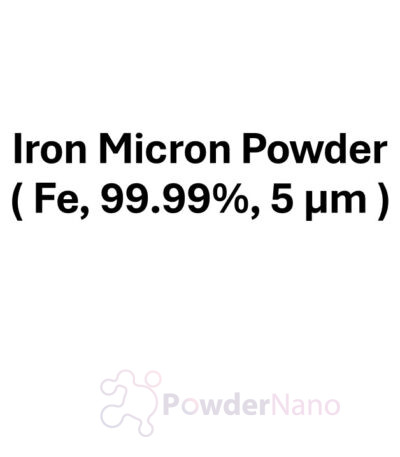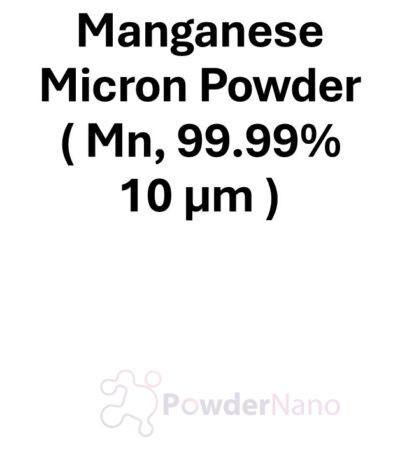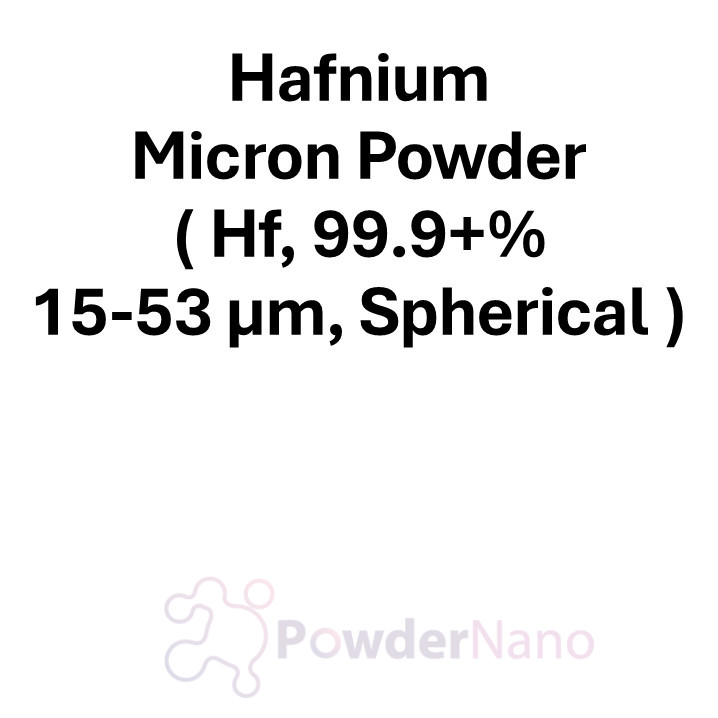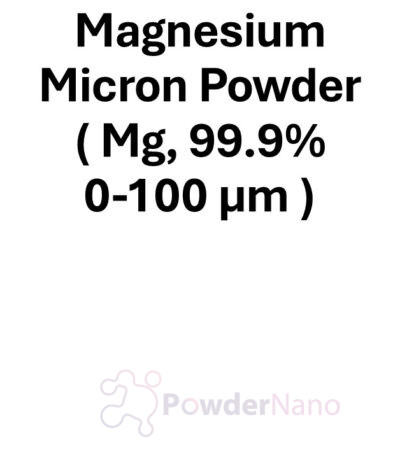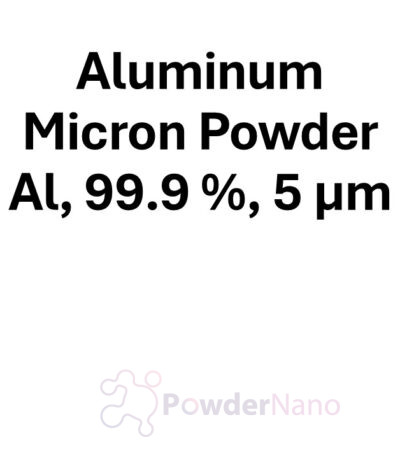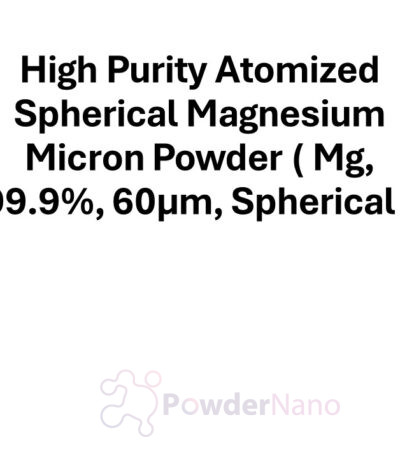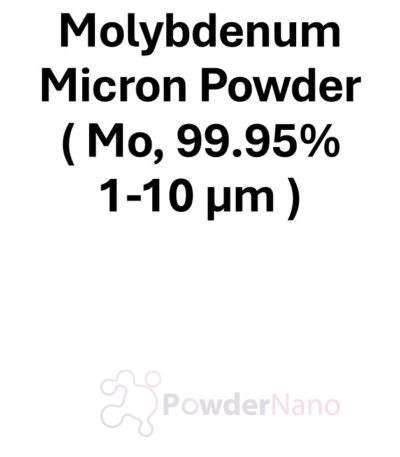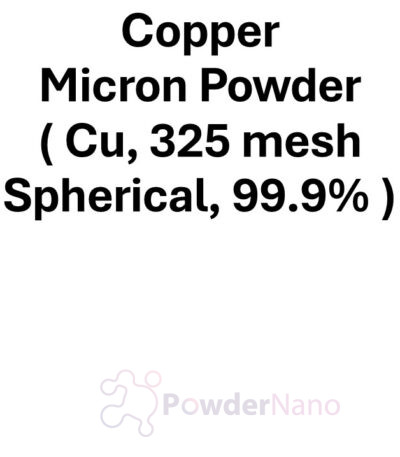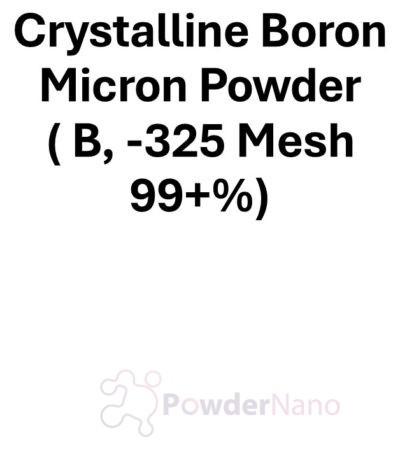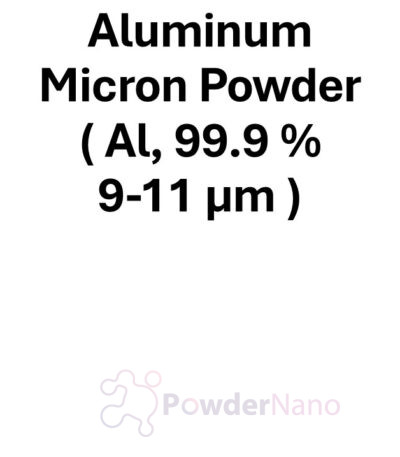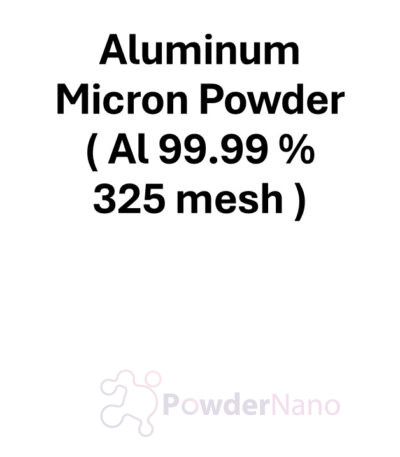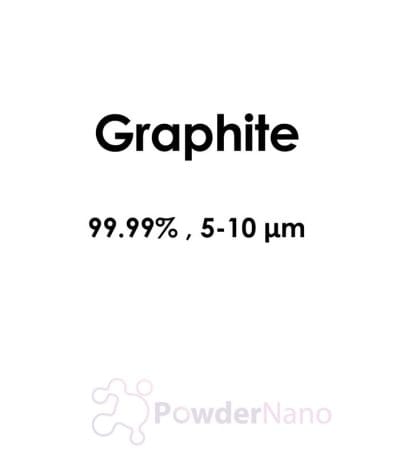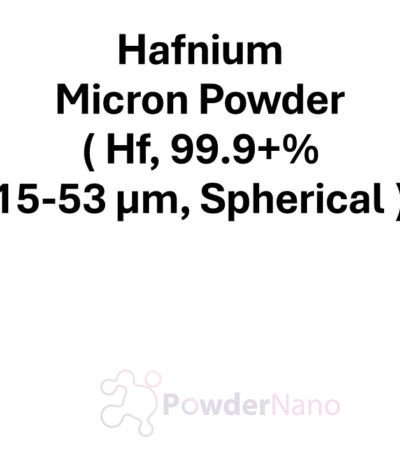Technical Description:
Hafnium Micron Powder (Hf, 99.9+%, 15-53 μm, Spherical) is a high-purity powder composed of hafnium (Hf) with a purity of 99.9% or higher. The powder particles have a size range between 15 and 53 micrometers (µm) and are spherical in shape, which is desirable for applications requiring consistent particle flow and uniformity.
- Chemical Composition:
- Hafnium (Hf) content: 99.9+%, which indicates a very high purity level, making it suitable for demanding applications where low levels of impurities are crucial.
- Particle Size:
- The powder particles range from 15 to 53 micrometers in diameter. This particle size is ideal for powder metallurgy, coatings, and additive manufacturing processes that require controlled particle sizes for optimized performance.
- Shape:
- The spherical shape of the particles provides excellent flowability, ease of handling, and consistent packing density, which is especially important in processes like powder sintering and 3D printing.
- Purity:
- The high purity of 99.9% or above ensures minimal contamination, making this powder highly suitable for sensitive applications where impurity levels must be carefully controlled.
Applications:
- Nuclear Industry:
- Hafnium has excellent neutron-absorbing properties, which make it valuable in the nuclear industry. Hafnium powder is used in the production of nuclear reactor control rods, as it efficiently absorbs neutrons and helps regulate the nuclear fission process.
- Aerospace and Defense:
- Hafnium is highly resistant to corrosion and oxidation, especially at high temperatures, which makes it ideal for applications in aerospace. Hafnium powder is used in the manufacture of turbine blades, rocket nozzles, and other components exposed to extreme heat and mechanical stress in both aerospace and defense applications.
- Additive Manufacturing (3D Printing):
- The spherical nature of hafnium powder, combined with its high purity, makes it well-suited for additive manufacturing technologies such as Selective Laser Melting (SLM) and Electron Beam Melting (EBM). These technologies rely on high-quality powder to produce precise, high-performance components in industries like aerospace, electronics, and defense.
- Metal Alloys:
- Hafnium is used in the production of high-performance alloys, particularly those requiring excellent heat resistance and stability. It is added to superalloys used in turbine engines and other high-temperature environments to enhance their strength and corrosion resistance.
- Electronics and Semiconductor Industry:
- Hafnium, due to its high dielectric constant, is used in the semiconductor industry to manufacture capacitors and other electronic components. Hafnium-based materials are also being researched for their potential in high-k dielectric applications for advanced microelectronics and integrated circuits.
- Coatings and Surface Treatments:
- The high heat resistance and low thermal expansion properties of hafnium make it ideal for coating applications. Hafnium-based coatings are used to protect components exposed to extreme conditions, such as in gas turbines, high-performance engines, and other industrial machinery.
- Catalysts:
- Hafnium is occasionally used in catalytic processes, especially in the production of certain chemical compounds. Its ability to interact with specific molecules at the atomic level makes it useful in refining and chemical manufacturing.
- Research and Development:
- Hafnium’s unique properties, particularly its high melting point, corrosion resistance, and neutron absorption, make it an attractive material for research applications. Researchers are investigating its use in advanced materials, including in the development of better-performing semiconductors, fuel cells, and next-generation nuclear reactors.
- Sintered Parts and Powder Metallurgy:
- Hafnium powder is used in powder metallurgy to produce sintered components. These components find applications in the automotive, aerospace, and electronics industries, where high-strength materials are needed for structural parts and specialized devices.
- High-Temperature Components:
- Due to its high melting point (about 2,227°C or 4,041°F), hafnium is used in applications that involve extreme temperatures. This includes components like heat shields, furnace linings, and other high-temperature materials in industries such as steel production, aviation, and space exploration.
- Thermal Barrier Coatings (TBCs):
- Hafnium-based powders can be used to create thermal barrier coatings that protect high-performance turbine blades and other hot-section engine components from extreme heat. These coatings extend the lifespan of critical components in engines, power plants, and other high-temperature industrial applications.
Summary of Benefits:
- High Purity: Ensures minimal contamination, making it ideal for advanced technological applications.
- Spherical Shape: Enhances powder flow, making it suitable for additive manufacturing, sintering, and coatings.
- High Melting Point & Corrosion Resistance: Makes it valuable for aerospace, defense, and high-temperature industrial applications.
- Neutron Absorption: Essential for nuclear industry applications such as control rods and shielding.
In conclusion, hafnium micron powder plays a critical role in a variety of high-tech and industrial applications where its exceptional properties, such as heat resistance, neutron absorption, and corrosion resistance, are required.
